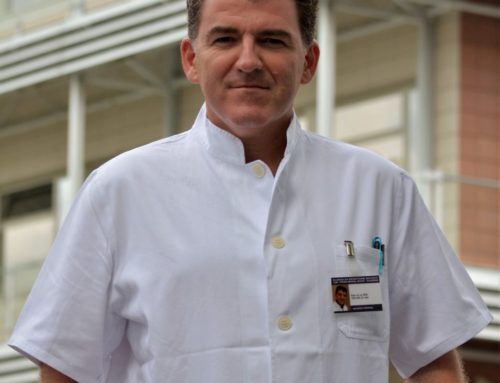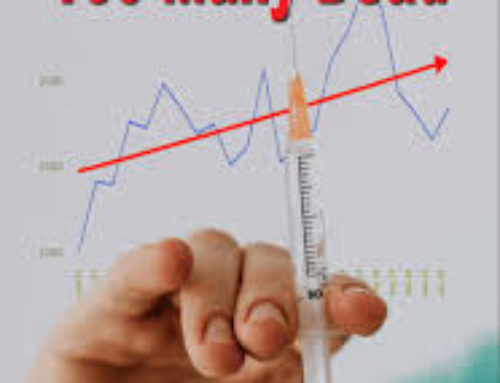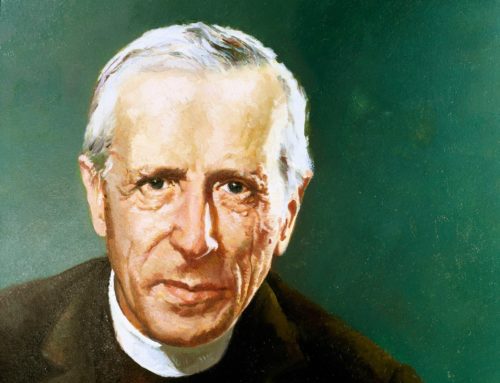There have been many conversations within the Catholic community about the safety and morality of COVID-19 vaccines. The Archdiocese of Washington supports and affirms the statement published on March 2, 2021 by the USCCB.

We have provided the information below to respond to questions you might have about the COVID-19 vaccine and Catholic moral teaching on this matter. For more information on the vaccines and their development, you can review a Catholic Standard interview with Dr. David Diemert, a medical doctor and scientist who is part of a team researching a potential COVID-19 vaccine. The USCCB has also published an internal memo on this issue, and you can find more information on that memo here. Finally, in October 2020, the Office of Life Issues published an article with more information in the Catholic Standard. Please do not hesitate to reach out to the Office of Life Issues at windelsk@adw.org if you would like more information or resources.
This FAQ is also available as a bilingual PDF file in both English and in Spanish.
Why is the COVID-19 vaccine controversial?
Many existing vaccines, including the MMR vaccine, use HEK293 cell lines that are descended from two abortions that took place in the 1970s. It is very important to note that these cell lines do not contain cells from the original abortions; rather, the lines are distant descendants and clones of the original cells, which were derived from human embryonic kidney tissue. This distant connection does not make the initial abortion any less evil. However, the remote connection does make a difference in our personal moral responsibility. If our intention is to receive the vaccine to protect life, then “the responsibility of those who make the decision to use them is not the same as that of those who have no voice in such a decision.” [Congregation for the Doctrine of the Faith, Instruction Dignitas Personae (8 th December 2008), n. 35; AAS (100), 885.] In other words, it is our responsibility to make our own moral decision, ideally with the intent of protecting the common good.
In the past two decades, statements made by Pope Benedict XVI and the Pontifical Academy for Life have clarified that most vaccines that utilize these cell lines are morally permissible because they save lives and help protect the most vulnerable members of our community. For example, the MMR vaccine (which also uses the HEK293 cell lines in its development) prevents infection from rubella, which causes serious illness and even loss of life for pregnant women and their babies. Receiving the MMR vaccine would save many lives, and would especially protect the lives of unborn children. Similarly, the COVID-19 vaccine will help to protect millions of lives, especially those who are most vulnerable and susceptible to serious illness and death.
How are the vaccines from Moderna and Pfizer different from the Johnson & Johnson vaccine?
Moderna and Pfizer have developed vaccines using mRNA, and without the use of controversial fetal cell lines. However, both vaccines have been tested using HEK293 cell lines. The Johnson & Johnson and AstraZeneca vaccines used the HEK293 cell lines in their development, which makes them seem “closer” in origin to the act of abortion.
However, given the remote connection between these cells and the vaccines, all COVID vaccines are in line with previous moral statements made by the Catholic Church. In the event that you are offered a COVID-19 vaccine that is developed from cell lines from abortion (such as the case of the Johnson & Johnson vaccine), the National Catholic Bioethics Center refers to a statement from Pope Benedict in 2005, published through the Pontifical Academy for Life. This statement explains that it is permissible for Catholics to use vaccines that are developed from aborted cells when necessary for their own health and safety. A more recent statement from the Pontifical Academy for Life (2017) reads:
“Especially in consideration of the fact that the cell lines currently used are very distant from the original abortions and no longer imply that bond of moral cooperation indispensable for an ethically negative evaluation of their use…the moral obligation to guarantee the vaccination coverage necessary for the safety of others is no less urgent, especially the safety more vulnerable subjects such as pregnant women and those affected by immunodeficiency who cannot be vaccinated against these diseases.
The technical characteristics of the production of the vaccines most commonly used in childhood lead us to exclude that there is a morally relevant cooperation between those who use these vaccines today and the practice of voluntary abortion. Hence, we believe that all clinically recommended vaccinations can be used with a clear conscience and that the use of such vaccines does not signify some sort of cooperation with voluntary abortion.”
Which vaccine should I receive?
Catholics who are receiving the COVID-19 vaccine in order to protect lives in their families and communities should feel comfortable receiving any vaccine that is available to them. The USCCB’s statement clarifies that each of us should receive the Moderna and Pfizer vaccines, if available, because they are more distant from the HEK293 cell lines.
However, a December 2020 statement from the Congregation for the Doctrine of the Faith, the group assigned to make theological statements on behalf of the Roman Curia and Pope Francis, clarifies that “when ethically irreproachable Covid-19 vaccines are not available…it is morally acceptable to receive Covid-19 vaccines that have used cell lines from aborted fetuses in their research and production process.”
The CDF statement clarifies that, because most people do not have a choice in the vaccine that they receive, it is morally permissible to take this vaccine in order to protect the lives of those who are most at risk of serious coronavirus. It is morally beneficial for each person to receive the vaccine that is most readily and immediately available to them to expedite the end of this deadly pandemic.
What can I do to represent my Catholic values on this issue?
As Catholics, we are encouraged to promote the work of companies that are not using these controversial cell lines. Please continue to call pharmaceutical companies directly and ask them not to use these cell lines in future vaccine development. These calls can be an effective strategy as in past movements, especially as technology develops and the HEK293 cell lines become less necessary in vaccine development.
Catholics are also encouraged to receive the COVID-19 vaccine and to promote the common good by following the guidelines from the Centers for Disease Control and Prevention. We are called to pursue the common good as we defend human life. In order to protect those who are most vulnerable to the coronavirus, including pregnant women and those who are immunocompromised, we are encouraged to discern our own moral actions to preserve life and dignity in our communities.
Catholics are also encouraged to advocate on behalf of the poor and vulnerable by encouraging their leaders to share the vaccine with other countries, especially those with at-risk populations.
Am I compromising on my pro-life values by receiving the Johnson & Johnson vaccine?
Catholic moral teaching calls us to care for the common good, avoiding association with grave evil. Our Catholic moral teachings also teach us to take action to protect each and every person we encounter, especially the most vulnerable. This teaching has not changed in the life of the Church, and will never change. Our opposition to abortion and the development of vaccines using cell lines descended from the act of abortion should be made clear to pharmaceutical companies.
When applying these moral values to the complex and nuanced situations we face in daily life, we are called to use the virtue of prudence. Prudence calls us to seek the most good in each and every situation, while avoiding evil. When faced with the nuance of the COVID-19 vaccines, each of us is called to discern how we can do the most good. For many of us, our commitment to protecting life at all stages calls each of us to receive the COVID-19 vaccine when it is available, in order to defend those most at risk of serious coronavirus. We encourage each member of the Archdiocese of Washington to receive the COVID-19 vaccine that is most readily and easily available. By seeking vaccination, we can help to protect our vulnerable communities from this deadly pandemic.
Finally, it is vitally important that Catholics remember how remote the connection between abortion and these recently developed vaccines really is. Our moral teaching opposes abortion under all circumstances, and there is a moral difference between committing an act of abortion, harvesting cells for use in treatment and vaccine development, and receiving a vaccine with the intent to protect your community. We must discern our level of responsibility in each of these circumstances to avoid oversimplifying a complex theological tradition.
Where can I find more information on this topic?
Linked here are several statements made by Pope Francis and various Catholic institutions and organizations. These statements reflect a consistency across the magisterium, and each statement encourages Catholics to receive the COVID-19 vaccine when they are able.
Urbi et Orbi, Message of His Holiness Pope Francis (Christmas 2020)
Note on the morality of using some anti-Covid-19 vaccines, Congregation for the Doctrine of the Faith (December 21, 2020)
Moral reflections about vaccines prepared from cells of aborted human fetuses, Pontifical Academy for Life (2005)
Note on Italian vaccine issue, from the Pontifical Academy for Life (2017)
Points to Consider on the Use of COVID-19 Vaccines, National Catholic Bioethics Center (December 8, 2020)
Discussion Draft of the Preliminary Framework for Equitable Allocation of COVID-19 Vaccine, from the Catholic Health Association of the United States (September 4, 2020)
Moral Considerations Regarding the New COVID-19 Vaccines, USCCB (December 11, 2020): English | Spanish
Statement on COVID Vaccines from the Maryland Catholic Conference: English | Spanish
In interview, COVID-19 vaccine researcher reflects on his work and his faith, from the Catholic Standard (October 9, 2020)
Catholic Church’s perspective on ethics of COVID-19 vaccine, from the Catholic Standard (October 9, 2020)
This information was posted on March 7, 2021 and updated May 28, 2021. It will be updated regularly as more information about the COVID-19 vaccine becomes available.










